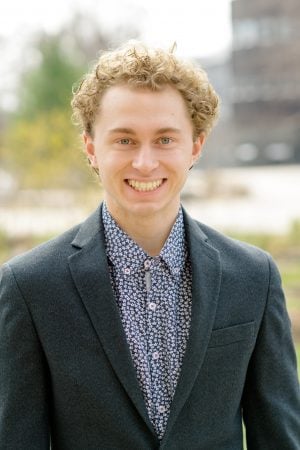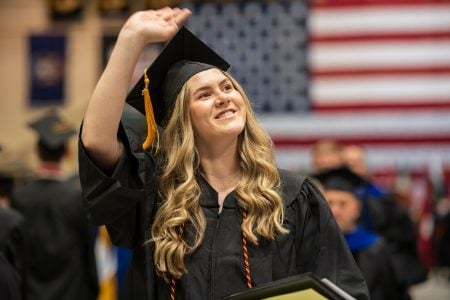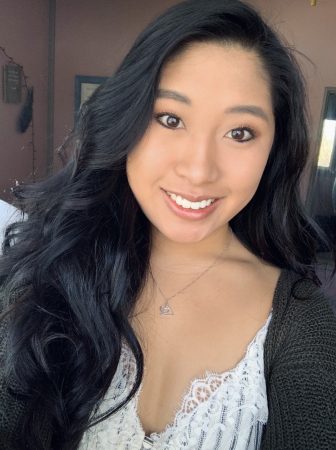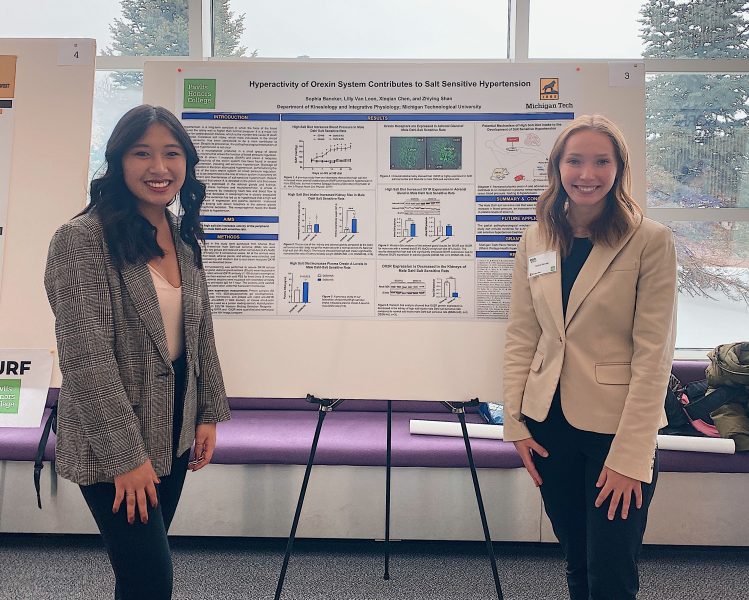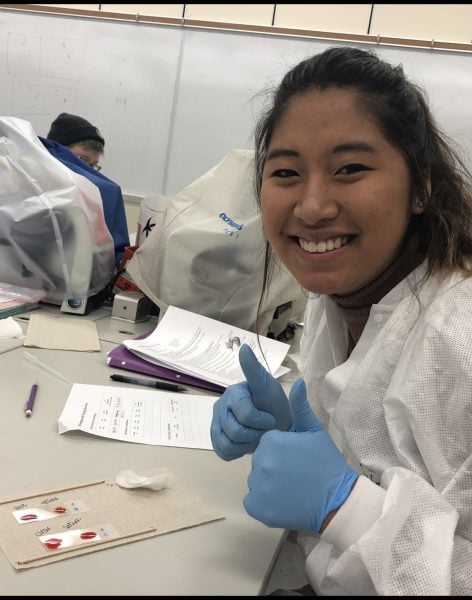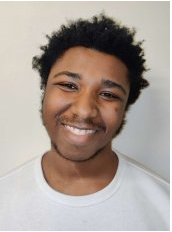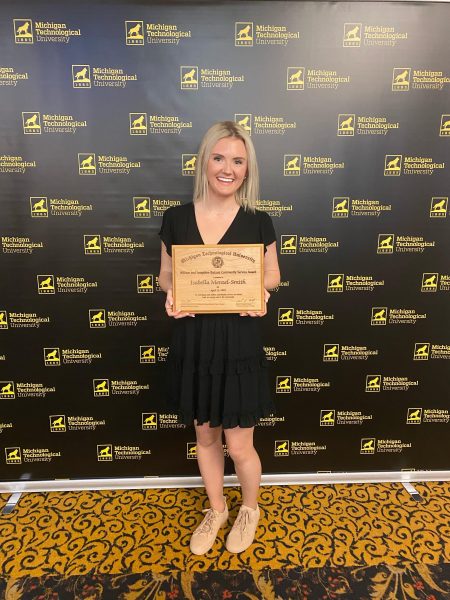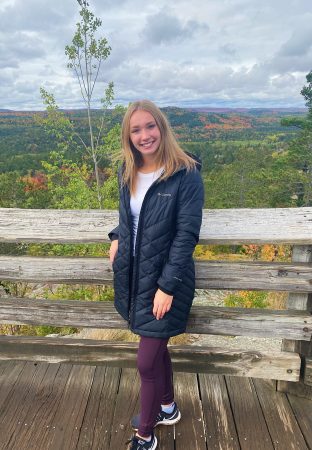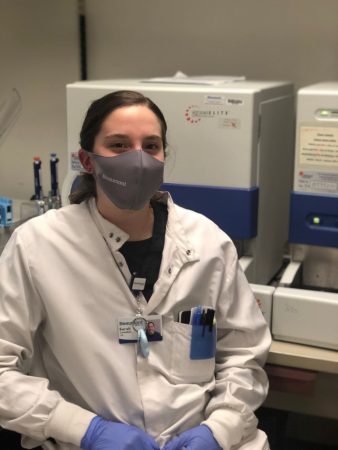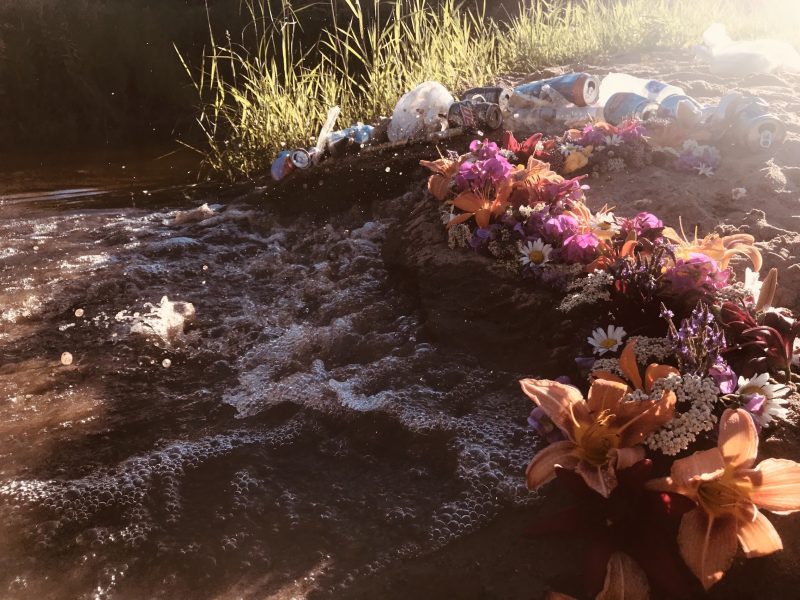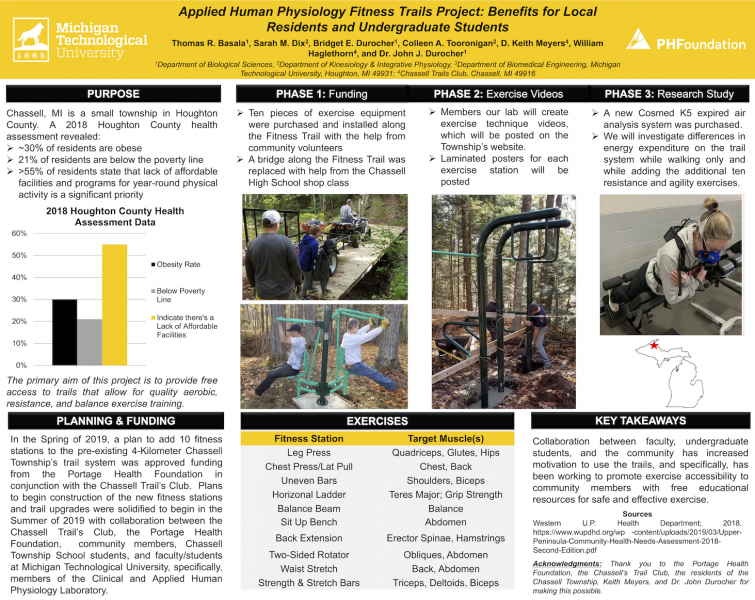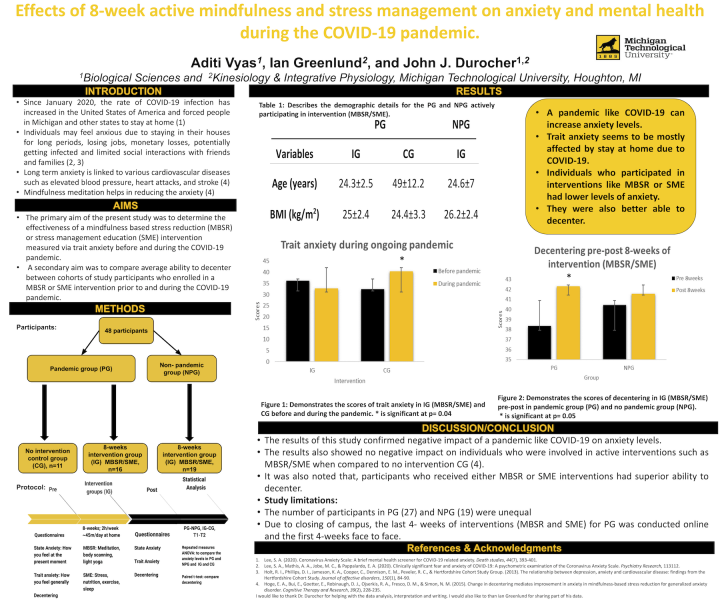Thomas Basala was the recipient of the 2021 Provost’s Award for Scholarship. He graduated in May with a Bachelor of Science in Human Biology.
Basala is spending the summer as a lead intern at the Minneapolis Heart Institute Foundation. He will stay there for the rest of this year as a research associate. He plans to attend medical school.
The Provost’s Award for Scholarship recognizes a student who embodies Michigan Tech’s scholarship value statement: We inspire world-class scholarship through academics, research, and continued learning. It is awarded annually to a rising senior who has demonstrated excellence not only in academics but also in research, levels of intellectual curiosity, creativity, and communication skills.
Each department is invited to nominate one undergraduate for the award. In 2021, Basala was the Department of Biological Sciences’ nominee.
“Thomas is one of the most conscientious, reliable, and appreciative students I have met,” says John Durocher, adjunct associate professor of biological sciences. Basala worked in Durocher’s lab.
Basala says winning the Provost’s Award caught him by surprise. “There are so many talented students at Michigan Tech,” he explains.
A student in the Pavlis Honors College, he worked in the Clinical and Applied Physiology Lab throughout his years at Michigan Tech. He received two research grants while he was an undergraduate: a Michigan Space Grant Consortium young investigator award to study how nocturnal blood pressure relates to indices of cardiovascular risks such as arterial stiffness; and a Summer Undergraduate Research Fellowship (SURF) to investigate the efficacy of pre-sleep meditation on sleep in young adults. “They were both very enriching to me,” he says.
Basala presented his meditation research at the 2022 Experimental Biology conference in Philadelphia. Additionally, he presented work on the impact of decentering—the ability to dissociate from emotional feelings—on nocturnal blood pressure patterns at the 2021 Experimental Biology conference. Both abstracts were published in the FASEB (Federation of Societies for Experimental Biology) Journal.
He fell in love with research under Durocher’s mentorship. “He taught me the minute nuances of doing human research,” Basala says. ‘He helped me understand what it means to be a well-rounded researcher and active community member. “
Basala wants to become that kind of clinician/researcher. “I want research always to be part of the patient care I do,” he says. “Research and clinical care inform each other and, in many cases, should not be separated.”
Basala is from Stevens Point, Wisconsin. During his time at Tech, he served as president of the Triangle STEM (Science, Technology, Engineering, and Math) fraternity, a lieutenant with Michigan Tech EMS (Emergency Medical Services), and co-coordinator for the Global and Community Engagement Conference.
This blog post initially appeared in the Fall 2022 Biological Sciences Newsletter. Read this article and others like it today.
